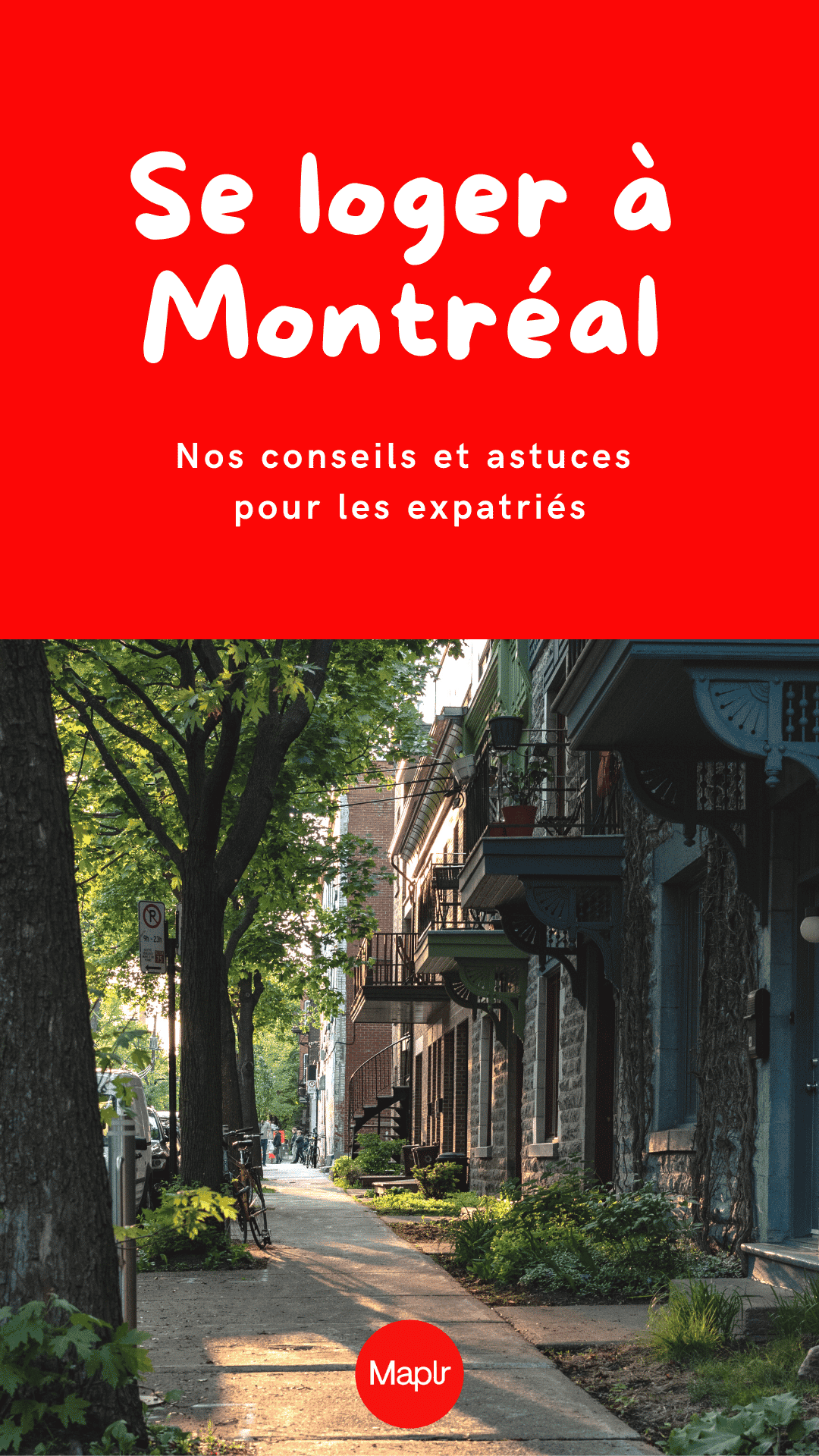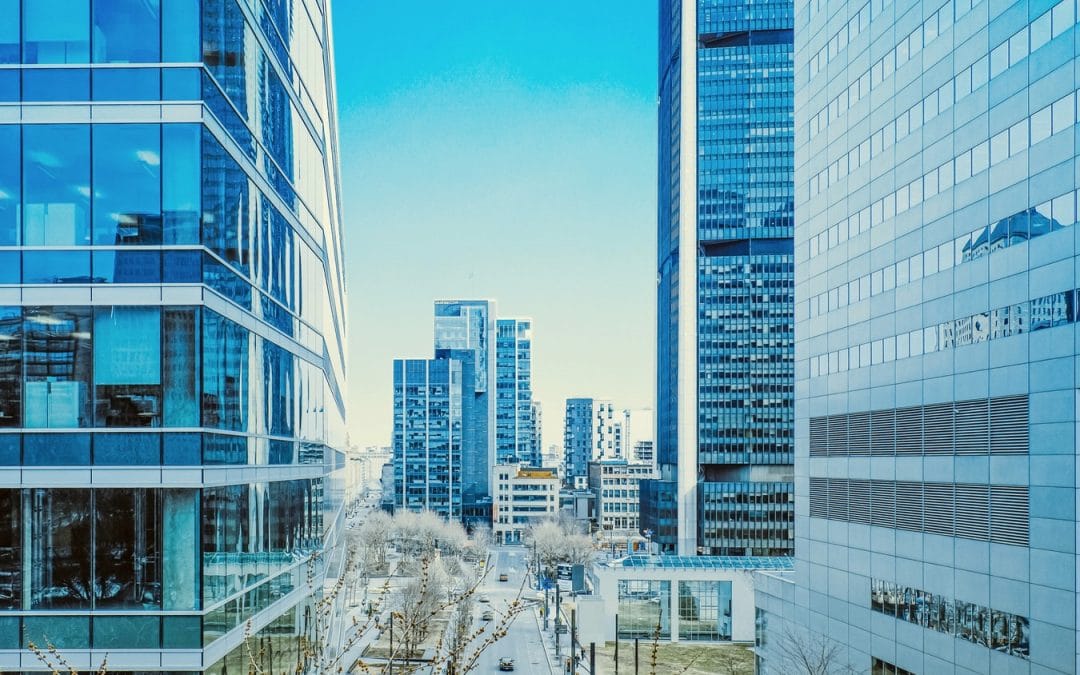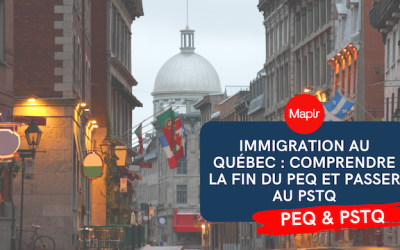Vous avez décidé de vous installer à Montréal ?
Félicitations ! Trouver un logement est une étape clé de votre expatriation et, souvent, la première préoccupation des nouveaux arrivants.
Vous vous demandez sûrement : où se loger à Montréal ? Pour vous aider à anticiper votre installation et à dénicher le logement idéal, voici quelques conseils essentiels.
Se loger à Montréal : spécificités des annonces de logement
Bien comprendre les annonces, c’est éviter bien des mauvaises surprises ! Voici les éléments essentiels à analyser attentivement lorsque vous consultez les offres de logement à Montréal
Un Condo, quésaco?
Les Français qui souhaitent louer ou investir au Canada peuvent se heurter à ce premier terme, très présent en Amérique du Nord. Les condos – “condominiums” – sont-ils synonymes d’appartements ? Pas vraiment.

L’une des différences majeures entre un condo et un appartement, c’est l’accès à la propriété. En effet, les appartements sont des unités d’un immeuble appartenant à un même propriétaire qui va les louer à des personnes souhaitant les occuper. Les condos – condominiums – sont, à l’inverse, des unités d’un immeuble vendues aux propriétaires qui désirent s’y installer.
La gestion de l’immeuble est également différente entre appartements et condos : alors que le propriétaire est responsable de l’entièreté de l’immeuble pour les appartements, il ne s’occupera que des parties communes dans un immeuble de condos. De fait, les condos sont en général plus luxueux que les appartements et offrent davantage de services aux habitants (piscine, salle de sport, concierge…).
Louer un condo à Montréal, est-ce possible ?
Certains propriétaires de condominiums choisissent de louer leur logement, tout comme on le ferait avec un appartement classique.
Opter pour un condo en location peut être une excellente solution si vous souhaitez vivre à Montréal dans un espace moderne et confortable, sans pour autant acheter. D’ailleurs, au Québec, l’isolation est un critère essentiel à considérer, surtout avec les hivers rigoureux ! ❄️🏙️
Les avantages de louer un condo :
✅ Aucune charge commune à payer : en tant que locataire, vous n’avez pas à assumer les taxes foncières, les frais de copropriété ou l’entretien des espaces communs.
✅ Accès aux commodités : selon l’immeuble, vous pourriez profiter de services comme une salle de sport, une piscine ou un espace de coworking.
Les limites à considérer :
❌ Personnalisation limitée : contrairement à un propriétaire, vous ne pourrez pas apporter de modifications permanentes au logement, comme installer de nouveaux électroménagers ou refaire la déco en profondeur.
Louer un condo à Montréal offre donc un bon équilibre entre confort, praticité et flexibilité. Reste à voir si cela correspond à vos besoins ! 😊
Se loger dans un condo à Montréal, quel est le coût dans tout ça ?
En général, le loyer d’un condo est plus élevé que celui d’un appartement classique, même dans un quartier et avec des caractéristiques similaires.
Cela s’explique par plusieurs facteurs :
🔹 Construction plus récente et matériaux de meilleure qualité
🔹 Meilleure isolation et insonorisation (un atout essentiel à Montréal !)
🔹 Accès à des commodités comme une salle de sport, une piscine ou un service de conciergerie
Si votre budget le permet, louer un condo peut être un excellent choix pour profiter d’un cadre de vie plus confortable et moderne pour faciliter votre arrivée 😊
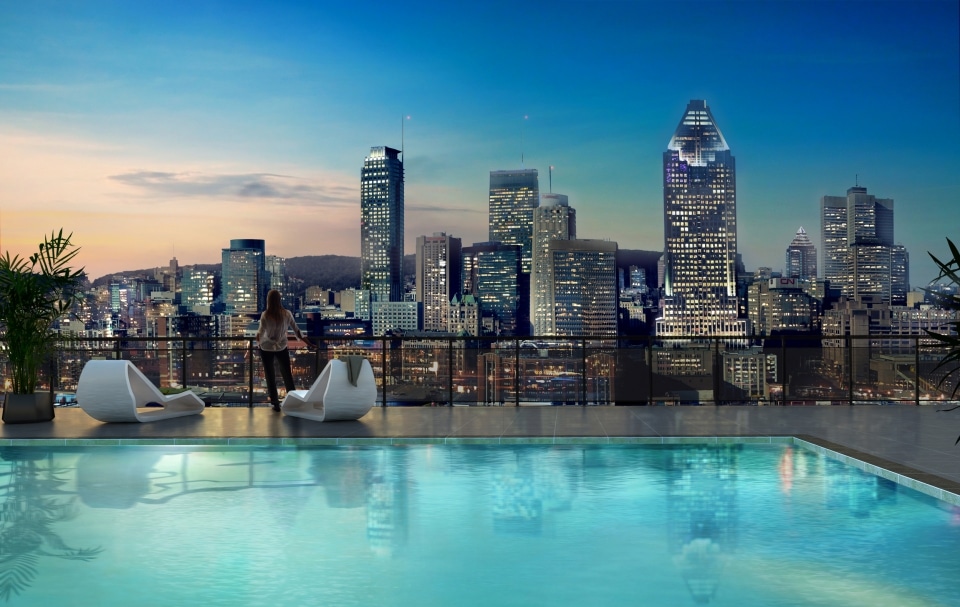
2 ½, 3 ½ ou 4 ½ ?
Vous verrez – presque – toujours ces indications apparaître dans le titre des annonces. Cela correspond au nombre de pièces que comprend le logement.
Le ½ signifie la salle de bain (qui compte pour une demi pièce). Ces mentions peuvent porter à confusion, car elles ne révèlent pas la surface du lieu, indiquée très rarement.
N’hésitez pas à demander directement au propriétaire pour connaître la superficie du logement.
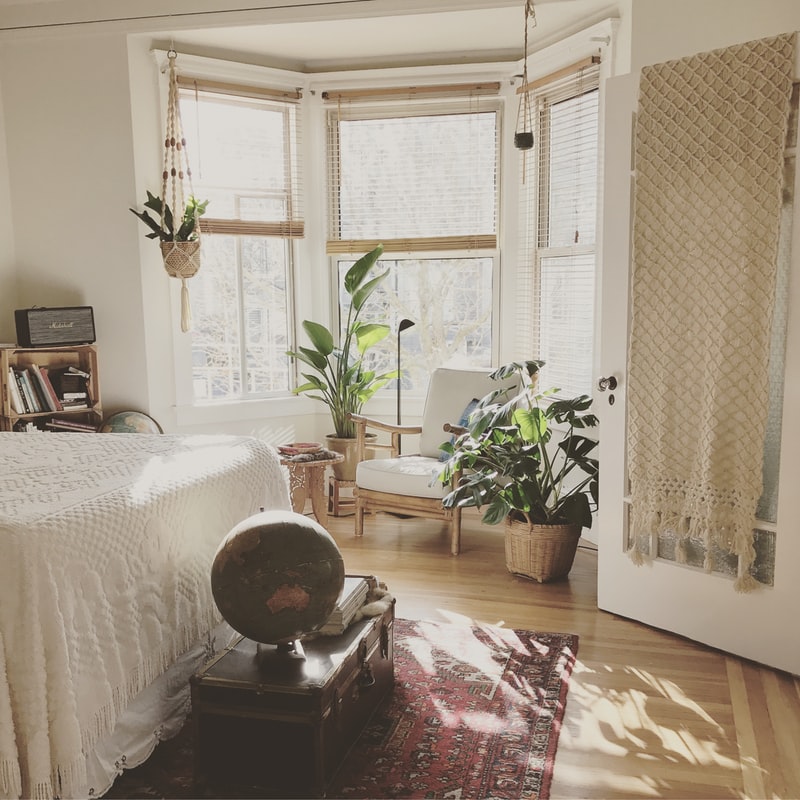
Comprendre la classification des logements à Montréal
À Montréal, les logements sont souvent désignés par une numérotation comme « 3 ½ », « 4 ½ », etc. Voici ce que ces appellations signifient :
🔹 1 ½ (Studio / T1)
Une grande pièce principale avec une kitchenette et une petite salle de bain.
🔹 2 ½
Un logement avec une chambre fermée, un salon, une kitchenette et une salle de bain.
🔹 3 ½ (T2)
Similaire au 2 ½, mais souvent plus spacieux, avec une cuisine complète séparée ou intégrée au salon.
🔹 4 ½ (T3)
Deux chambres fermées, un salon, une cuisine complète, séparée ou non, et une salle de bain.
🔹 5 ½ (T4)
Trois chambres fermées, un salon, une cuisine complète et une salle de bain.
🔹 6 ½ (T5 et plus)
Trois ou quatre chambres fermées, souvent une salle à manger en plus du salon, une cuisine complète séparée, et une salle de bain.
💡 À noter : Le ½ désigne toujours la salle de bain. Plus le chiffre est élevé, plus l’espace est grand et adapté aux familles ou à la colocation ! 😊
Convertir les pieds en mètres
Si les kilomètres n’ont pas été convertis en miles au Québec, les pieds ont pris le pas (sans jeu de mot) sur les mètres concernant les logements. Pour que vous ayez une idée plus claire de cette différence, 1 pied = 30,48cm. Par exemple, un logement de 328 pieds carrés fait environ 30 mètres carrés.
Meublé/Semi-meublé : quelles différences ?
Les locations meublées sont des logements qui contiennent tous les meubles et électroménagers nécessaires à l’installation immédiate des locataires. Ces locations incluent parfois les charges comme Internet, eau, chauffage et électricité dans le loyer.
Les locations semi-meublées, elles, comprennent des logements non-meublés où les électroménagers de base sont inclus (réfrigérateur, gazinière, four).

🏡 Petit lexique immobilier à Montréal
Voici quelques termes essentiels à connaître pour mieux comprendre les annonces de logements :
🔹 Cottage → Maison à deux étages
🔹 Duplex / Triplex / Quadruplex → Propriété divisée en deux, trois ou quatre logements
🔹 Bungalow → Maison de plain-pied (sans étage)
🔹 Maison semi-détachée → Maison jumelée (collée à une autre sur un côté)
🔹 Split-level → Maison à plusieurs niveaux décalés
🔹 Maison de ville → Maison en rangée, collée aux autres de chaque côté
🔹 Bachelor → Appartement en sous-sol, demi-sous-sol ou dans une maison unifamiliale
🔹 Premier étage → Rez-de-chaussée (différent de la France !)
🔹 Deuxième étage → Premier étage en France
🔹 Locker → Espace de rangement, intérieur ou extérieur
💡 Astuce : Faites attention aux différences de terminologie pour éviter toute confusion lors de vos recherches ! 😊
Se loger à Montréal : et pourquoi pas un Basement ?
Au Canada et aux États-Unis, les sous-sols des logements sont très souvent aménagés. Loin de ressembler à notre cave à vins humide, il est tout à fait possible d’y vivre et ils disposent même parfois de fenêtres.
Attention cependant, la luminosité est tout de même réduite et l’hiver, avec les journées qui raccourcissent et la neige qui s’accumule, vous risquez de vivre rapidement dans l’obscurité. Les loyers de ces appartements sont toujours moins élevés, compte tenu des désavantages que cela implique.
Se loger à Montréal : la vérification du crédit
Les vérifications au Québec
Selon la Régie du Logement du Québec :
“ Pour s’assurer des habitudes de paiement du futur locataire, le locateur peut, avec le consentement de ce dernier, recueillir des informations auprès des locateurs actuels ou antérieurs. Le locateur peut alors demander les noms et coordonnées de ces derniers et réaliser une enquête de crédit “
Par ailleurs, pour établir ses habitudes de paiement, le futur locataire peut fournir au locateur :
- Une attestation de crédit de son institution financière
- Une lettre de recommandation d’un locateur précédent
- Tout autre document attestant du respect de ses obligations par un organisme ou une entreprise de biens ou de services qui requiert des paiements échelonnés dans le temps (par ex. : Bell, Hydro-Québec, Vidéotron, etc.)
- Les extraits pertinents de son dossier de crédit
Un locateur a la possibilité de faire appel à un agent de renseignements personnels (« bureau de crédit ») pour effectuer une vérification de crédit. Il doit absolument obtenir l’accord du futur locataire. Seuls les noms, adresse et date de naissance suffisent – le numéro d’assurance sociale n’est pas nécessaire.
La vérification de crédit peut être menée par le/la futur.e locataire qui partagera le rapport d’enquête au locateur.
À savoir : La plupart du temps, les nouveaux arrivants n’ont ni historique de crédit, ni références de propriétaires antérieurs au Canada : même en l’absence de ces informations, la majeure partie des propriétaires acceptent de louer leur logement. Vous pouvez également demander une lettre de recommandation de votre banque en France pour appuyer votre dossier – c’est toujours apprécié
Vos droits et vos devoirs en tant que locataire
La Régie du Logement au Québec est là pour vous informer de vos droits et responsabilités, des lois existantes au Québec et des procédures à tenir englobant tous les aspects de votre location.
C’est l’association de locataires de votre quartier, qui peut vous venir en aide pour toute question relative à la location d’un logement
Vos données personnelles
Le propriétaire ne peut pas exiger que vous lui partagiez votre numéro d’assurance sociale (NAS), votre numéro de compte bancaire, votre numéro de permis de conduire ainsi que votre numéro de carte maladie. Il peut en revanche vous demander votre nom, prénom, votre adresses actuelle et celles antérieures et votre date de naissance.

À titre de locataire, vous avez l’obligation de :
- payer au moment inscrit dans le bail le loyer exigé;
- utiliser le logement avec prudence et d’une façon responsable;
- effectuer les petites réparations qui s’imposent;
- ne pas changer la forme ou la destination (type d’utilisation) du logement;
- remettre le logement dans l’état où vous l’avez reçu;
- ne pas troubler la tranquillité des autres locataires.
Des démarches simples pour se loger à Montréal
En comparaison avec la France, au Québec, les démarches sont assez rapides pour accéder à un logement en location.
À savoir : Comme dit précédemment, vous devrez démontrer que vous êtes un bon payeur, le locateur n’ayant pas de garantie (caution). S’il ne vous est pas possible de satisfaire à l’enquête de crédit en tant que nouvel arrivant, vous pourrez lui apporter des preuves de votre solvabilité : une copie de votre contrat de travail, un relevé de compte bancaire rigoureux présentant un solde à quatre ou cinq chiffres, la désignation d’un cautionnaire / garant responsable solidairement, une lettre de recommandation de votre banque française.
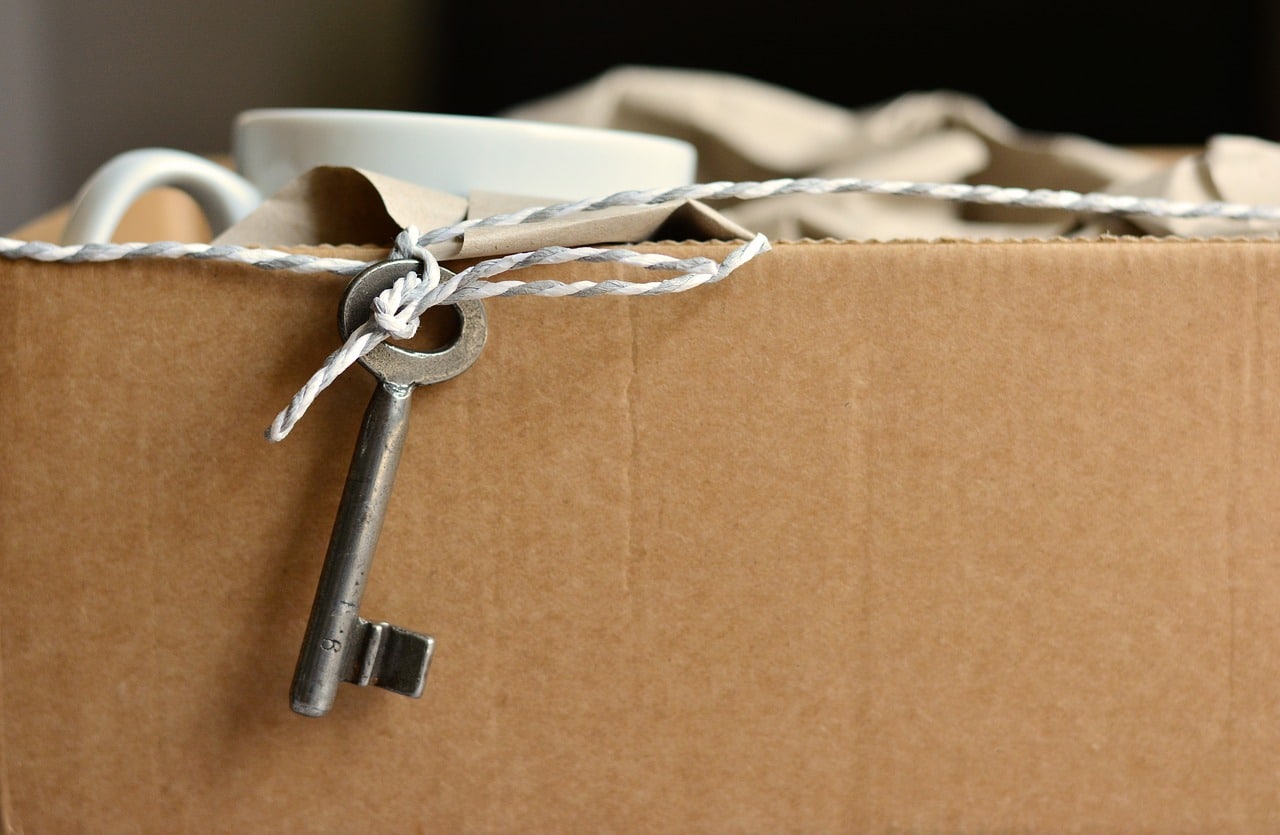
Se loger à Montréal : bail et jour du déménagement
Les baux et le jour du déménagement
Il existe au Québec le “Jour du déménagement”, le 1er juillet de chaque année. Par coutume, la majeure partie des baux résidentiels se terminent le 30 juin / 1er juillet. Si vous cherchez un logement, vous aurez donc davantage de choix (mais aussi plus de concurrence) en avril, mai et juin.
Le bail est un contrat consensuel qui ne requiert aucune formalité particulière. Il peut être accompli par écrit ou verbalement par le seul échange des consentements. Au Québec, la Régie du logement vous oblige à signer son propre formulaire de bail, que vous louiez un appartement, une chambre, un condo ou une maison. C’est un moyen de rassurer les deux parties et d’éviter les mauvaises surprises.
Même si votre bail est davantage propice à se terminer le 1er juillet, aucune durée de location minimum n’est établie par la loi : il est tout à fait possible de louer un logement pendant un mois ou trois ans (la période maximale est tout de même de 100 ans par bail).
Le formulaire de bail réglementaire doit mentionner les éléments suivants :
- Le nom du ou des locataire(s) et du propriétaire;
- La description et la destination du logement loué, des accessoires et dépendances (adresse du logement, les meubles et/ou électroménagers inclus dans la location);
- La durée du bail (durée fixe ou durée indéterminée);
- Le loyer : son montant, la date et le mode de son paiement (à la semaine ou au mois);
- Les services (travaux et réparations, service de conciergerie, autres services, taxes et coûts de consommation pour le chauffage, l’eau chaude, etc.) et conditions (règlements de l’immeuble);
- Les signatures de chacune des parties
Vous pouvez vous procurer un formulaire de bail type dans les pharmacies (Pharmaprix, Jean Coutu)
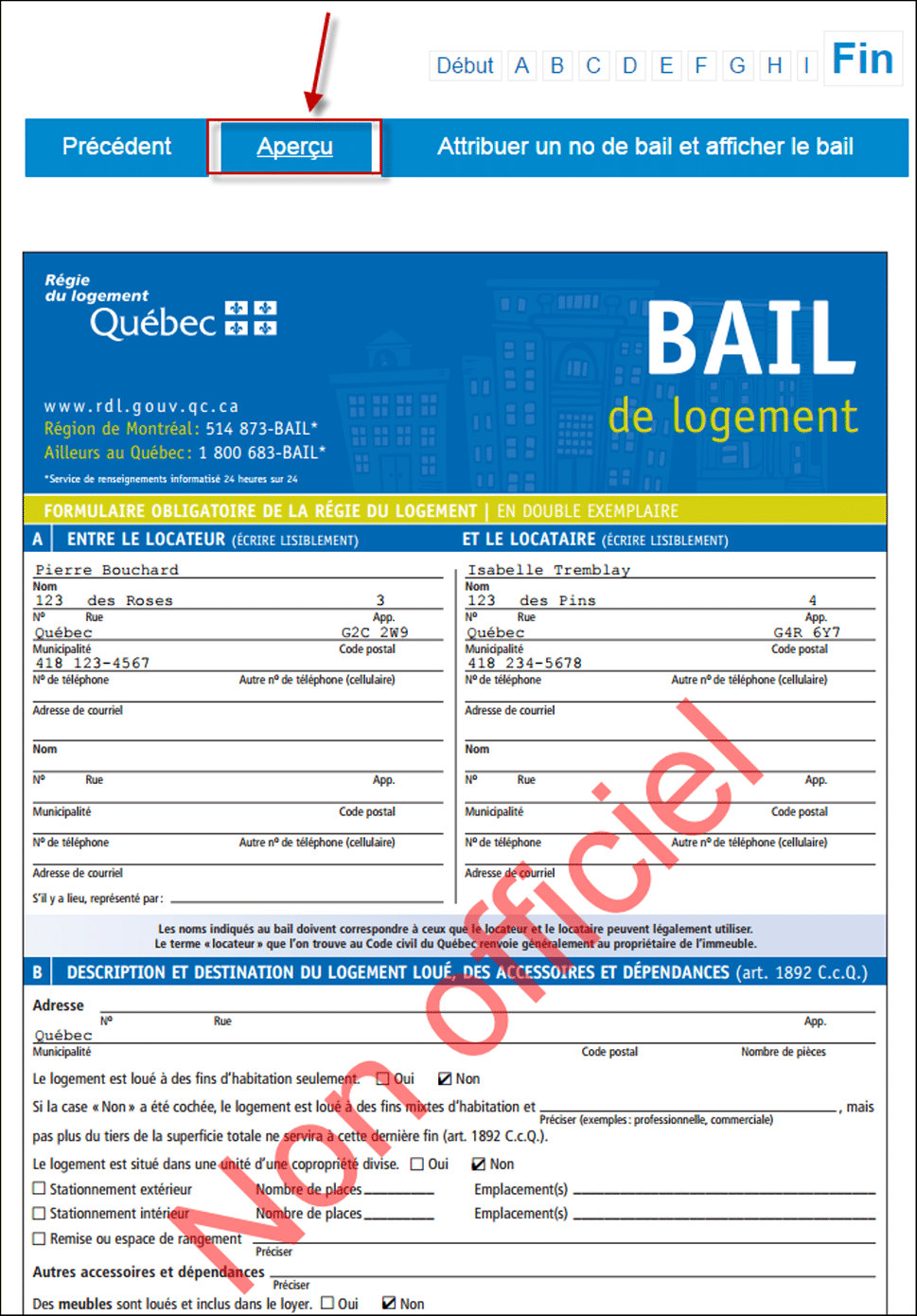
Se loger à Montréal : Sous-location et cession de bail
Comme expliqué précédemment, les baux se terminent généralement le 1er juillet.
Si vous désirez quitter votre appartement en cours de bail, vous pouvez le sous-louer et garder ainsi la possibilité d’y revenir. Cette procédure est tout à fait légale au Québec. Vous pouvez aussi faire une cession de bail, c’est-à-dire résilier votre bail et le passer à un autre locataire. En général, le locataire du logement s’arrange pour trouver rapidement un futur locataire qui reprendra son bail. Bien entendu, il faut en avertir le propriétaire qui peut refuser et se cherchera lui-même son nouveau locataire.
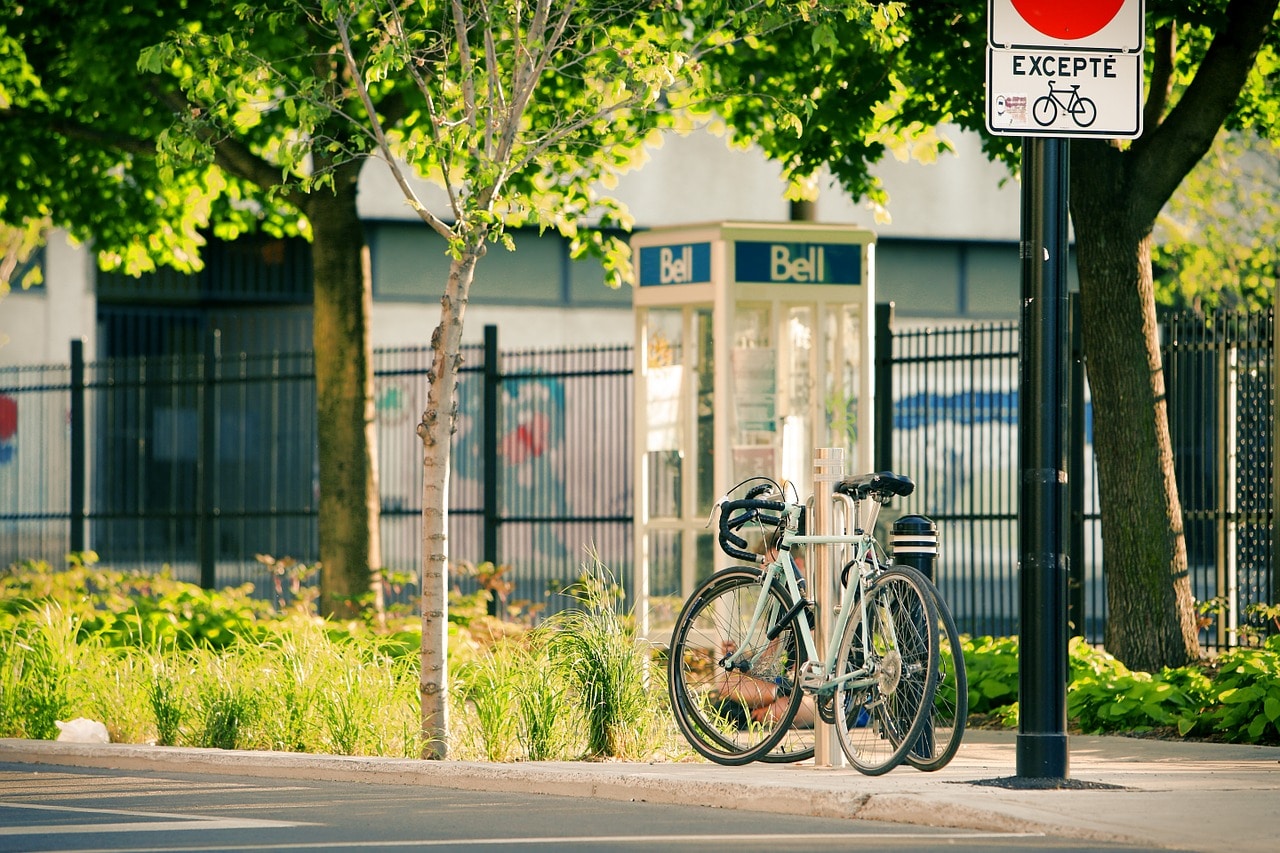
Se loger à Montréal : budget à prévoir
Le mode de paiement du loyer peut être négocié et doit être clairement inscrit dans le bail. En général :
✔️ Les loyers sont payés aux échéances convenues, ou par défaut, le 1er de chaque mois.
✔️ Ils peuvent être réglés en argent comptant, par chèque certifié, mandat postal ou, dans certains cas, par carte de crédit.
✔️ Le propriétaire ne peut pas exiger plus d’un mois de loyer à l’avance ni imposer de chèques postdatés.
✔️ Le bail doit préciser quelles charges sont incluses dans le loyer (chauffage, eau chaude, électricité, etc.).
📌 Autres frais à prévoir dans votre budget logement
En plus du loyer, pensez à intégrer ces dépenses dans votre budget :
💡 Électricité et chauffage (non inclus dans certains logements)
📶 Internet et câble
🔐 Assurance habitation (fortement recommandée, parfois obligatoire)
📦 Frais de déménagement
Bien planifier ces coûts vous aidera à éviter les mauvaises surprises; voici notre article complet sur le budget ! 😊
L’assurance habitation, une nécessité pour les locataires
Si elle n’est pas une obligation légale, l’assurance habitation est indispensable face aux imprévus qui peuvent arriver dans votre logement.
En plus de garantir vos biens et vos meubles, l’assurance habitation vous procure, en signant le contrat, une assurance de responsabilité civile, à l’intérieur et à l’extérieur de votre logis.
Il faudra, en moyenne prévoir 30$ / mois pour une assurance habitation à Montréal
Électricité, gaz et eau
Le locataire est responsable des dépenses d’énergie (surtout du chauffage), à moins que le bail ne précise qu’elles sont payées par le propriétaire. Il est très simple de s’abonner aux services d’électricité et de gaz puisque, dans chaque région, ils sont assurés par une seule société de distribution. Il suffit d’appeler le service à la clientèle des sociétés d’électricité, Hydro-Québec, et gazière locales, Energir – anciennement Gaz Métro, pour savoir comment vous abonner et ce qu’il vous en coûtera mensuellement. La consommation d’eau, elle, n’est pas facturée – le réseau d’eau potable est financé par l’intermédiaire des impôts fonciers payés par les propriétaires.
À savoir : Au Canada, le courant électrique est généralement installé au voltage de 110 volts (on peut trouver du 60 volts ou du 40 volts, mais cela reste extrêmement rare). Les installations électriques sont les mêmes qu’aux États-Unis. Les appareils prévus pour une utilisation en Europe et dans plusieurs autres pays du monde auront besoin d’un adaptateur ou d’une prise spéciale.
Pour l’électricité/gaz, comptez 50$ en moyenne pour un 3 ½
Le dépôt de garantie / la caution
Il n’est pas rare que les propriétaires vous demandent un dépôt de garantie : sachez que vous êtes en droit de refuser, car c’est interdit par la loi (pour les contrats classiques d’une durée d’un an) ! Ils ont seulement le droit de vous demander le paiement du premier terme/mois au moment de la signature du bail.
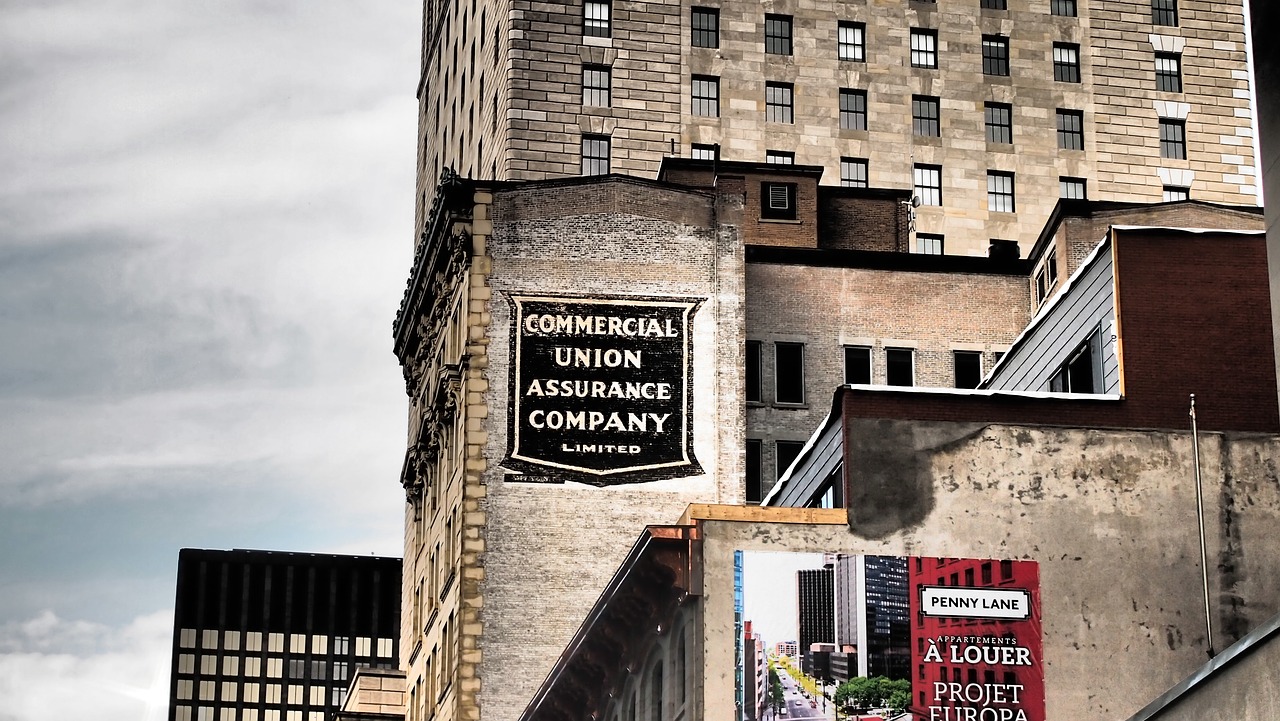
Taxe d’habitation et Taxe scolaire
Bonne nouvelle ! La taxe d’habitation n’existe pas au Québec ! Seulement, il existe la taxe scolaire.
Les propriétaires doivent payer une taxe à la commission scolaire francophone ou anglophone qui dessert le territoire où se situe le lieu d’habitation. Cette taxe scolaire est directement incluse dans le loyer que le propriétaire vous demande.
Retrouvez toutes les dépenses à prévoir dans notre article sur le coût de la vie à Montréal.
Meubler son appartement
- IKEA : on ne va pas vous présenter Ikea 😉 à noter, la voiture est indispensable pour s’y rendre
- EQ3 : EQ3 est un détaillant et manufacturier canadien dévoué à la fabrication et la conception de qualité. EQ3 favorise les designs originaux, la fabrication d’ici et une perspective canadienne unique en ce qui concerne l’ameublement et les articles ménagers modernes.
- Structube : Structube était à la base une petite entreprise familiale, aujourd’hui devenue une référence en termes de décoration, de design et d’ameublement au Canada. Ils proposent une gamme incroyable de meubles et accessoires au meilleur prix. Plusieurs magasins à Montréal
- Nüspace : Nüspace est le lieu incontournable du design contemporain à Montréal où vous trouverez toute une gamme de mobilier de qualité, séduisants, confortables et abordables.
- ZONE Maison : cette entreprise québécoise propose des meubles et de la décoration pour tous les budgets, au style design et contemporain. Plusieurs magasins à Montréal.
Boutiques plus haut-de-gamme :
- Buk et Nola : Buk & Nola est l’endroit idéal pour trouver la touche finale à un décor, dénicher le cadeau parfait ou simplement se délecter les yeux.
- MUST Société : des collections pour l’intérieur et d’autres pour l’extérieur, une zone-cuisine, un comptoir de fleurs, un espace réservé à l’électronique, une boulangerie et la boutique Ligne Roset pour les passionnés de mobilier contemporain haut de gamme.
- West Elm : originaire de Brooklyn, la société s’est implantée à Griffintown, à Montréal. Ils collaborent avec des communautés artisanales et des créateurs indépendants, et s’efforcent de concevoir des produits ayant un impact positif sur les gens et l’environnement.
- V de V : VdeV est un magasin de mobilier et accessoires de décoration de style vintage/industriel dans le Mile End.
- Cœur d’artichaut : les propriétaires de Cœur d’Artichaut voyagent à travers le monde à la recherche d’artisans qui aiment voir le monde comme une terre d’opportunité et qui ont à coeur de proposer des objets ayant une histoire.
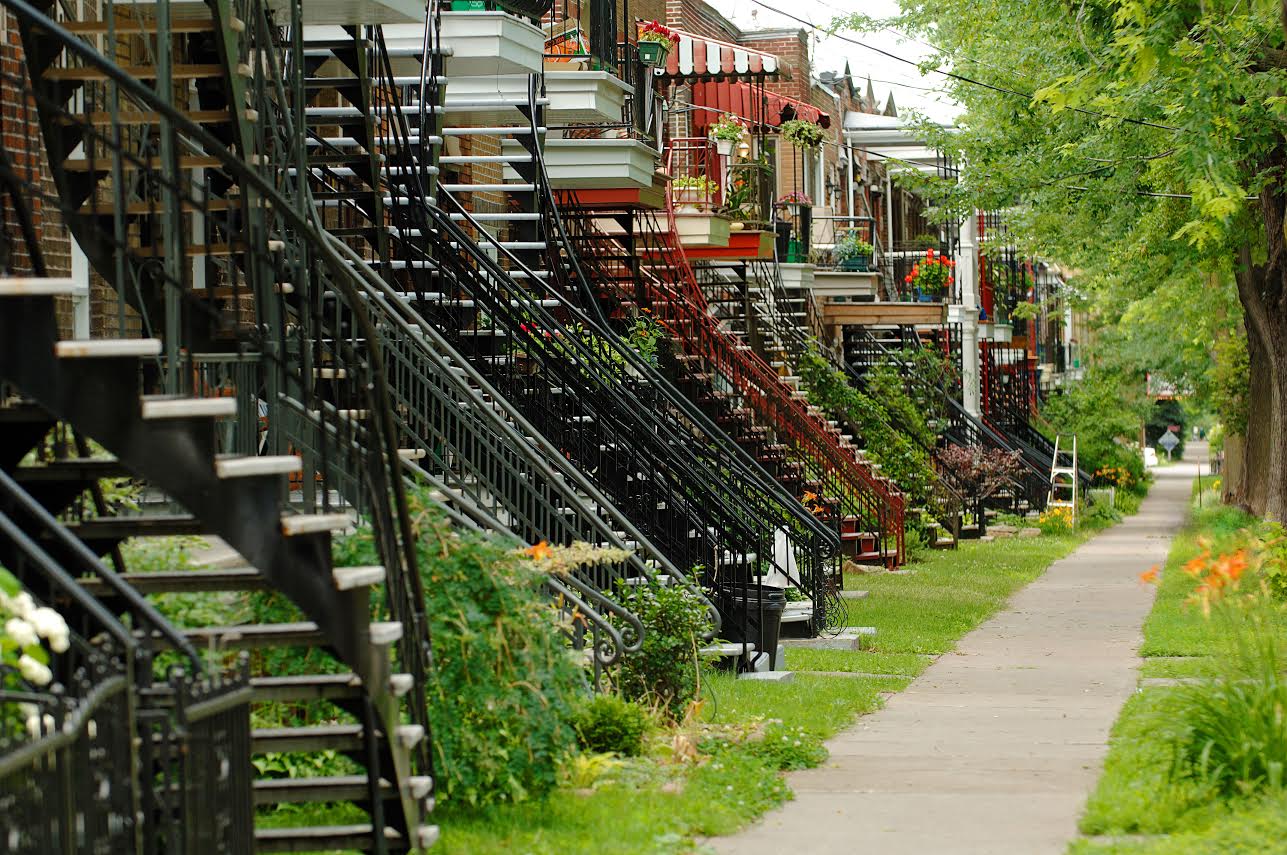
Se loger à Montréal : quel quartier choisir ?
Découvrez notre tour d’horizon des principaux quartiers de Montréal, en images, budget et description dans notre article : “Découvrir les quartiers de Montréal”
Se loger à Montréal : quand et comment chercher un logement en tant qu’expatrié ?
Réserver une location temporaire
L’idéal est d’arriver à Montréal en ayant réservé une chambre / un appartement / une maison temporaire et de visiter directement sur place. En effet, l’offre est plus grande et accessible et les visites réelles seront plus rassurantes pour vous et pour les propriétaires.
Bookez un hébergement sur Airbnb et faites des recherches préalables sur Internet avant votre arrivée.
Quelle est la meilleure période pour trouver un logement à Montréal ?
Comme nous le disions au début de l’article, le Jour du déménagement a lieu chaque 1er juillet à Montréal (et dans tout le Québec). Par conséquent, les périodes les plus propices pour trouver votre futur nid sont les mois d’avril, mai et juin. L’hiver (novembre – début mars) est la saison où l’offre de logements est la plus faible.
Où rechercher un logement ?
De nombreux sites web mettent en relation les propriétaires et les futurs locataires
- Le MarketPlace de Facebook est la plateforme la plus consultée autant par les propriétaires que les locateurs. En effet, les propriétaires affichent leur logement à louer, mais les locataires peuvent également afficher leur logement afin de céder leur bail. On y trouve souvent des pépites !
- Centris est une plateforme qui met de l’avant toutes les propriétés à vendre ou à louer par les courtiers immobiliers du Québec.
- Kijiji et Craigslist sont d’autres plateformes canadiennes historiquement très connues.
- https://rentals.ca/
- Kangalou est une entreprise canadienne située à Montréal qui dessert les locataires et les propriétaires. Plus qu’un site de recherche de logements ou de locataires, la plateforme est un incontournable pour louer son logement sans perdre de temps, pour y vivre une expérience de location plus humaine et pour y retrouver, à un seul endroit, une foule de conseils et d’outils pour réussir sa location.
- DuProprio et LesPac ou PadMapper sont trois autres bons sites web pour trouver un logement
- Des groupes Facebook (Montreal Apartments/Logements Montréal, Logement à Montréal…) permettent aux propriétaires ou aux locataires de poster des annonces (attention cependant aux arnaques)
À Montréal, il faut être réactif et réagir assez vite aux annonces, car en 2/3 jours les biens ne sont plus disponibles. D’où la nécessité d’être sur place pour votre recherche de logement.
Faire appel à un courtier immobilier : un atout pour votre recherche de logement
Au Québec, il est courant et avantageux de s’entourer d’un courtier immobilier résidentiel pour louer un logement. Son accompagnement est gratuit pour les locataires et vous permet de :
✔️ Définir vos critères et sélectionner les quartiers adaptés à vos besoins
✔️ Trouver des logements disponibles, même ceux qui ne sont pas encore sur le marché
✔️ Négocier les conditions du bail avec le propriétaire
✔️ Éviter les pièges et vous assurer que le contrat respecte la réglementation québécoise
🔎 Bon à savoir : Même avant votre arrivée au Canada, un courtier peut analyser vos besoins et vous guider vers les meilleures options selon votre budget et votre style de vie.
🚀 En rejoignant notre communauté de développeurs francophones expatriés au Canada, vous bénéficiez d’un réseau de courtiers immobiliers de confiance et de nos conseils avisés pour faciliter votre installation à Montréal ! 🏡🇨🇦
Cet article t’a plu ? N’hésite pas à le partager
sur les réseaux sociaux 👍
